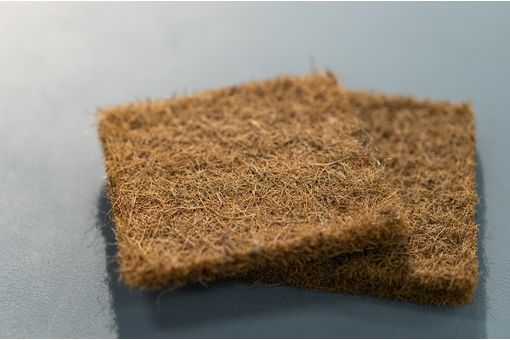Interviews
Pilot study on spinning behavior of organic cotton by SITRA
08 Jan '08
3 min read
Cotton cultivation using organic farming techniques seeks to maintain soil fertility and the use of materials and practices that enhance the ecological balance of natural systems and integrate the parts of the farming system into an ecological whole.
Certified organic cotton was introduced during 1989-90 and over 20 countries in the world have tried to produce organic cottons.
According to estimates of Cotton Corporation of India, around 20 lakh bales of organic cotton are produced in India and used for making textile products.
Recently, a pilot study was conducted at SITRA on the spinning behaviour of organic cotton. In this study, organic -ELS cotton and normal - ELS cotton were spun and compared for yarn quality.
There is not much of a difference in the quality attributes of organic and normal cottons taken for this study. However, organic cottons have distinctly higher level of maturity (matured fibres - 70% to 75%) as compared to normal cotton (matured fibres - 55% to 60%).
Studies have established the fact that cow or sheep dung based manures with top dressing have beneficial effects on fibre maturity.
Hence, it may be deduced that the better fibre maturity of organic cottons may be due to the type of manures (cow dung with top dressing) generally used for cultivation.
Both the cotton samples were spun into 80s combed yarn (20% noil extraction during combing) using more or less identical process parameters.
Certified organic cotton was introduced during 1989-90 and over 20 countries in the world have tried to produce organic cottons.
According to estimates of Cotton Corporation of India, around 20 lakh bales of organic cotton are produced in India and used for making textile products.
Recently, a pilot study was conducted at SITRA on the spinning behaviour of organic cotton. In this study, organic -ELS cotton and normal - ELS cotton were spun and compared for yarn quality.
There is not much of a difference in the quality attributes of organic and normal cottons taken for this study. However, organic cottons have distinctly higher level of maturity (matured fibres - 70% to 75%) as compared to normal cotton (matured fibres - 55% to 60%).
Studies have established the fact that cow or sheep dung based manures with top dressing have beneficial effects on fibre maturity.
Hence, it may be deduced that the better fibre maturity of organic cottons may be due to the type of manures (cow dung with top dressing) generally used for cultivation.
Both the cotton samples were spun into 80s combed yarn (20% noil extraction during combing) using more or less identical process parameters.
Popular News
Leave your Comments
Editor’s Pick
































-Ltd..jpg?tr=w-120,h-60,c-at_max,cm-pad_resize,bg-ffffff)





.jpg?tr=w-120,h-60,c-at_max,cm-pad_resize,bg-ffffff)
.jpg?tr=w-120,h-60,c-at_max,cm-pad_resize,bg-ffffff)






